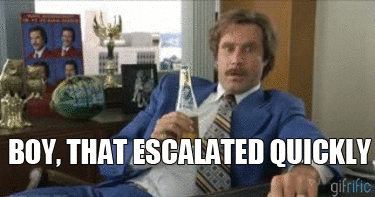German court rules that firebombing a synagogue is not anti-Semitic
Edit:
Thanks to Irminsul for the clarification
This week a German regional court ruled that the 2014 firebombing of a synagogue in Wuppertal, a region just east of Düsseldorf, was an act of criminal arson, but not anti-Semitic. Instead, the court found it was a protest against Israel, even though the synagogue was obviously not in Israel and those who worship there are Jews, not Israelis.
The decision upheld that of a lower court, which stated the perpetrators, a trio of Palestinian-born German residents, wanted to "call attention to the Gaza conflict" when they prepared and then lobbed Molotov cocktails at the synagogue one July night in 2014. No one was injured, but the attack caused €800 in damages. The men were ultimately given suspended sentences.
The case in Wuppertal was not an isolated act of blaming Jews for Israeli policy. It took place in the summer of 2014, during a bloody Israeli incursion into the Gaza Strip designed to prevent Hamas militants there from continuing to rocket Israeli border towns. Images broadcast around the world were of children hurt or killed; anti-Israel protests were held across Europe. The violence ultimately claimed the lives of 70 Israelis and 2,205 Palestinians; the number wounded on both sides went far higher.
And, as the summer's conflict continued, anti-Semitic acts against Jews around the globe went up, enormously. According to a report jointly issued in April 2015 by the Kantor Center for the Study of Contemporary European Jewry in Tel Aviv, and the European Jewish Congress, 766 acts of anti-Semitism were recorded in 2014, an increase of 38 percent from the previous year. These were, according to the report, "with and without weapons, and by arson, vandalism or direct threats against Jewish persons or institutions such as synagogues, community centers, schools, cemeteries and monuments, as well as private property."
The Anti-Defamation League issued a report in August 2014 noting a "dramatic surge" in attacks. The acts ranged in size and scope. In Paris, memorably, protesters trapped Jewish worshippers in a synagogue. Chants at rallies across Europe often swapped the word "Jews" with that of "Israel." In the United Kingdom, the Community Service Trust, which has monitored anti-Semitism in the UK since 1984, registered the highest number of anti-Semitic acts in the organization's history.
Edit:
Thanks to Irminsul for the clarification
Btw., that article doesn't really describe what actually happened. No court ruled anything this week.
The second-level court convicted two Palestinians in January last year, sentencing them to 23 and 24 months jail on parole, respectively. It wasn't explicitly deemed an anti-semitic act, but a harsher sentence than what the first-level court ruled. (Source, German)
In German law, both defence lawyer and prosecution can appeal the ruling and make their case what the ruling should be; on a higher-level court, the sentence can only go in the direction of the appeal (which is why often, both sides appeal a ruling). The prosecution wanted to get the Palestinians in jail without parole (with the same jail time) and the act deemed explicitly anti-semitic, but they withdrew their appeal shortly before the hearing on the higher-level court, probably because they made a deal with the defence lawyer. (Source, German)
Later last year, one of the perpetrators appealed the ruling. To be more precise, he used something called "Revision" in German law, which can only be used to go against errors of law in the ruling; there is no new hearing of evidence. In November 2016, a higher-level court ruled that this appeal was unfounded.
On 6 January, 2017 (now we're finally entering this year!), the second-level court simply stated the the ruling was final. (Source, German)

